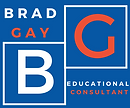Appraisal is dead?
- Brad Gay

- Sep 3, 2019
- 2 min read
Since the announcement by the Teacher’s Council about the difference in expectations around appraisal I have had a number of emails and groups asking what this means for them. If you haven’t seen this, then you can check out the clarification on their website and read their FAQs. My short reply, “Is what you are doing now onerous for teachers? If the answer to that is yes then do something about it. If no keep doing what you're doing.”

In a nutshell:
Teaching As Inquiry is not compulsory (It never was) I still see a place for it as when it is done well it develops and supports staff learning. This in turn leads to best outcomes for learners.
An annual summary report that states whether or not the appraisee meets the Standards or Ngā Paerewa - the annual summary report is the only teacher documentation that is required for the purposes of the audit ERO undertakes on behalf of the Teaching Council. ERO will be aware of this. BRAD’S SUMMARY DOC
That appraisees have been observed once annually and involved in two conversations ideally with an appraiser who is familiar with the day to day work of the teacher - the Council has listened to the profession and accepts that one observation may suffice for fully certificated teachers.
In my view, appraisal will become a simplified process:
Strongly connected to the School PD that is aimed at meeting a strategic goal for the school.
Where reflection should still occur at meetings.
Where portfolios of evidence should disappear but a teacher should be able to find naturally occurring evidence to inform their practice and to indicate meeting of the Standards of The Teaching Profession. (Yes, the STP’s will still play a major part in the sign-off's of teachers.) Schools may have a collective approach to meeting the STP's.
At midpoint and endpoint an overview reflection and discussion about the year to date is had. This includes interpreting and setting future next steps.
A clear move away from compliance to teacher learning and development is key. Reflections and evidence discussed is still important for this development to occur and it has to reflect meeting the STP's.




Comments